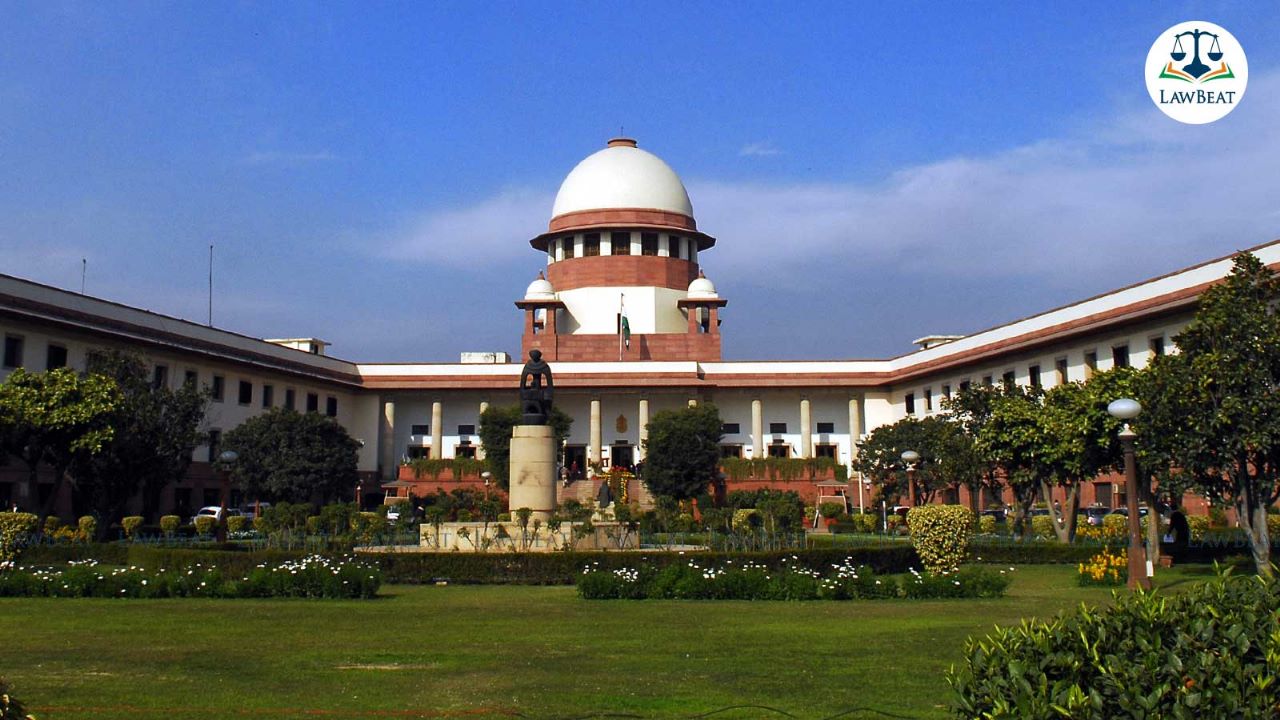'Role of courts limited,' Supreme Court dismisses plea against referring dispute on cancelling conveyance deed to arbitration

After the 2015 amendment, primarily the court only has to see whether a valid arbitration agreement exists and additionally the clear non-arbitrability of cases, such as where a party to the agreement is statutorily protected, such as a consumer “has also to be seen by the Court", top court has said
The Supreme Court has emphasised that the role of a court in arbitration matters is extremely limited as the law allows little interference as possible by a judicial authority.
"All jurisdictional issues including the existence and the validity of an arbitration clause can be gone into by the Arbitral Tribunal. In other words, the Arbitral Tribunal is competent to decide on its own competence," a bench of Justices Aniruddha Bose and Sudhanshu Dhulia said.
The bench pointed out major amendments were made in the Arbitration Act in the year 2015, inter alia, both in Section 8 and Section 11 of the Act, in order to further reduce any chances of judicial interference.
"The basic purpose for bringing an amendment in Section 8 (as well as Section 11 of the Arbitration Act) was to minimise the scope of judicial authority in matters of arbitration, except on the ground where prima facie, no valid arbitration agreement exists," the bench added.
In any case, Section 16 of the Arbitration Act gives immense powers to the Arbitral Tribunal, including power to rule on its own jurisdiction, it further pointed out.
After the 2015 amendment, primarily the court only has to see whether a valid arbitration agreement exists. Additionally, the clear non-arbitrability of cases, such as where a party to the agreement is statutorily protected, such as a consumer “has also to be seen by the Court", the bench said.
"Objections will nevertheless be raised both on Section 8 and Section 11 applications. These objections can be genuine, such as where there is no arbitration clause or where the matter is itself non-arbitrable, but often these objections could be only to wriggle out of the statutory commitment of parties to a defined process of redressal mechanism," the judgment said.
The bench delineated on the issues while finding no grounds for interference with the orders Bombay High Court as well as trial court, which had referred a plea to declare a conveyance deed as null and void for arbitration.
As per facts of the case, M/s Emerald Acres Private Limited was incorporated by Shivkumar Daga and his wife, Mrs Sushma Shivkumar Daga (appellant no 1) on April 18, 2006 to carry on the business of real-estate development.
Subsequently, two tripartite agreements were signed between Shivkumar Daga and Madhurkumar Ramakrishnaji Bajaj & Ors and M/s Emerald Acres Private Limited to develop, trade, and deal with the property and also to acquire such further properties as may be mutually agreed between the parties. Both the Tripartite Agreements of 2007 and 2008 contained the arbitration clause.
Sushma Shivkumar Daga filed the suit for declaration the conveyance deed as null and void.
Of all the objections, the bench noted the plea for cancellation of a document amounts to an action in rem has held to be wrong as per the SC judgement in 'Aliens Developers (P) Ltd vs Janardhan Reddy' (2015).
The other objection regarding fraud was raised by the appellants but it has never been substantiated, except for making a bald allegation, there is nothing else, the bench noted.
Referring to the SC's judgment in 'Rashid Raza v Sadaf Akhtar', (2019), the bench pointed out, it has been held that the allegations must have some implication in public domain to oust the jurisdiction of an arbitrator, and if an allegation of fraud exists strictly between the parties concerned, the same will not be termed to be as a serious nature of fraud and hence would not be barred for arbitration.
"In the present case, therefore there is absolutely no ambiguity that both the tripartite agreements dated 31.03.2007 and 25.07.2008 contain an arbitration clause, which forms the basis of all subsequent agreements including the agreements sought to be declared as validly terminated by the appellants and the conveyance deed sought to be declared as null and void. Both the trial court as well as the High Court have given a correct finding on facts as well as on law. We find no scope for interference in the matter," the bench said, dismissing the appeal.
